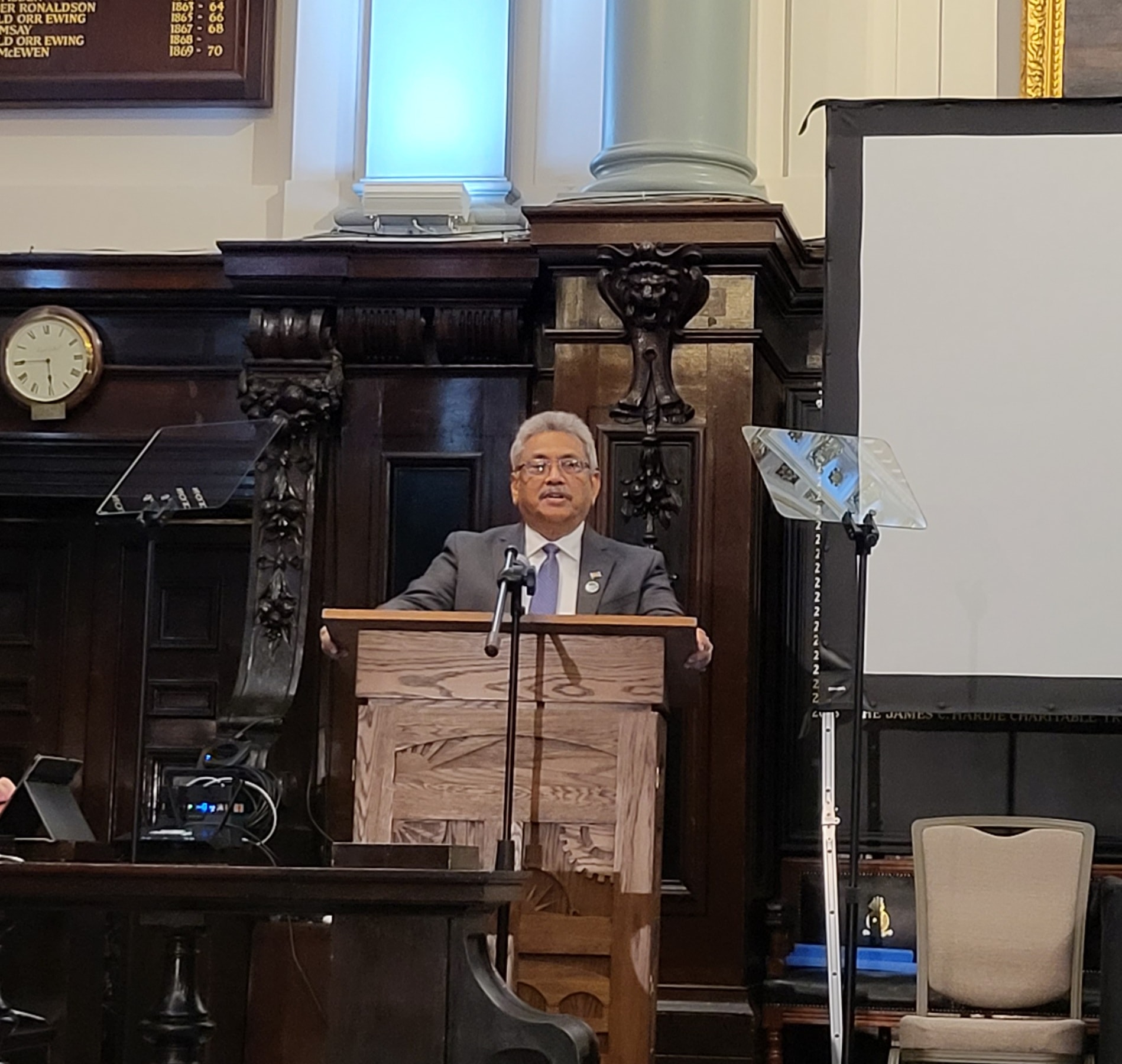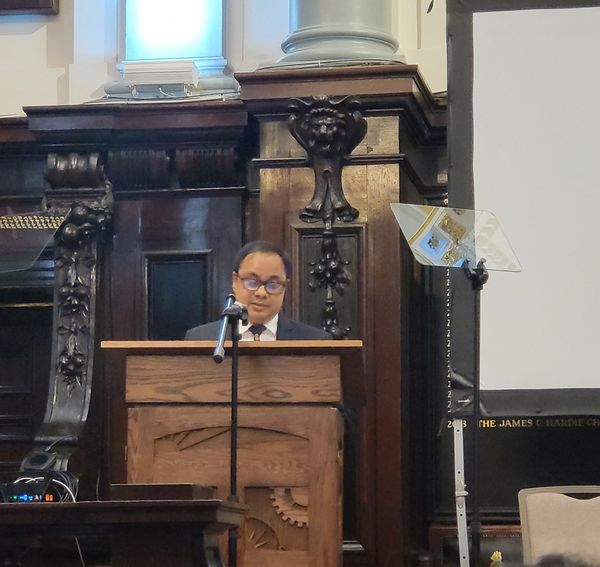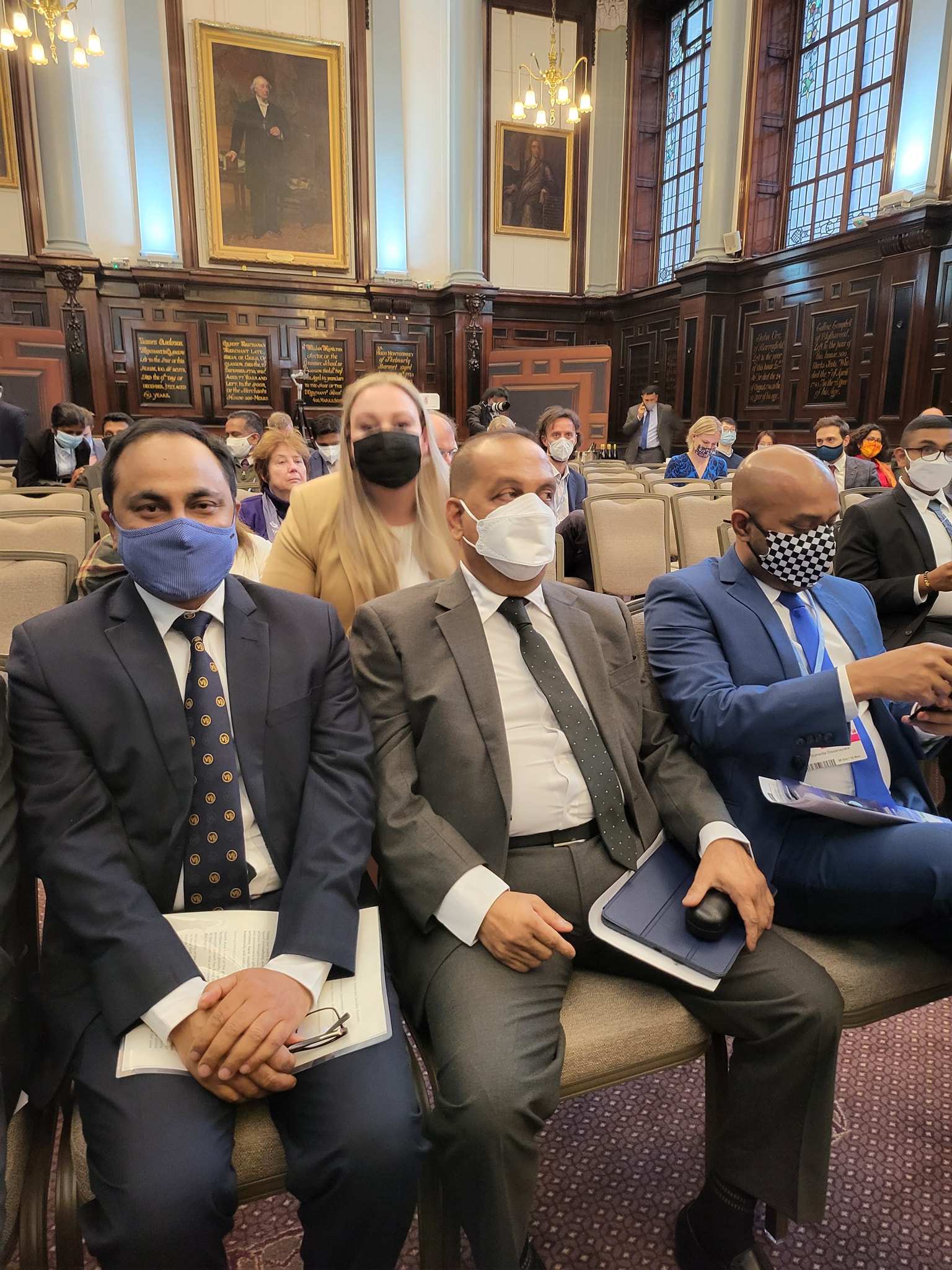November 01, 2021

Keynote remarks by H. E. Gotabaya Rajapaksa, the President of Sri Lanka, Sri Lanka’s Progressive Ambitions for Nitrogen and Climate: opportunities for cooperation.
Dr. Md Masumur Rahman , Director General, South Asian Cooperative Environment Programme (SACEP) and Government of Bangladesh speaks on South Asian leadership on nitrogen for COP26.
Welcome Address by Hon. Mahinda Amaraweera, Minister of Environment, Sri Lanka.
Why Nitrogen and Climate? Prof. Mark Sutton, Director, GEF/UNEP International Nitrogen Management System & Director, UKRI GCRF South Asian Nitrogen Hub.
Concluding Remarks by Hon. Prof. G. L. Peiris, Foreign Minister of Sri Lanka.
Director General's speech

His Excellency President Mr. Gotabaya Rajapaksha, Democratic Socialist Republic of Sri Lanka
Professor Gamini Laksman Pieris, Hon’ble Foreign Minister, Government of Sri Lanka
Mahinda Amaraweera, Hon’ble Minister of Environment, Government of Sri Lanka
Lord Ahmed of Wimbledon, UK minister for South Asia, UN and Commonwealth
Baroness Patricia Scotland, Secretary General of Commonwealth Executive Director Inger Anderson of UN Environment Programme
Professor Julie Fitzpatrick, Chief Scientific Advisor Scotland
Excellencies, Ladies and Gentlemen,
Today our event is on rediscovering nitrogen. Nitrogen is an abundant element found everywhere, and is one of four elements that forms basic building blocks of all lives. Nitrogen cycles through all the earth systems in its different forms defining our environment in different manners. Over the years Nitrogen pollution by human activities have negatively impacted to climate change, food security, loss of biodiversity and critical ecosystems.
Distinguished guests,
South Asia is one of the global hotspots for nitrogen pollution and ranks second in fertilizer usage globally. A population of nearly 2 billion people to feed and a high economic growth has been the main cause of this increased pollution of nitrogen in the region. And unfortunately, this nitrogen pollution is taxing a high cost from the region.
Air quality of the South Asian cities are among the worst with development of smog in New Delhi, Dhaka and Karachi during winter. This has a large impact on human health and puts an undue burden on critical health infrastructure of the region. The oxygen levels of the South Asian Seas are declining, causing deterioration of coastal ecosystems and its services like coral reefs and mangroves. Recently, we are observing the increase of the dead zones in South Asia Seas which is really alarming. Livelihoods of coastal community of the region heavily depends on these services like fisheries, food, tourism etc. We must also acknowledge the fact that some parts of the region face drought, Famine and loss of greenery due to lack of nitrogen and erosion of soil. All these elements are creating a severe negative impact on climate change in South Asia.
Excellencies,
As we are at COP26, I would like to highlight the close relation between the UNFCCC convention and the Sustainable Nitrogen Management Systems.
The Objective of the convention calls for; “stabilization of greenhouse gas concentrations in the atmosphere at a level that would prevent dangerous anthropogenic interference with the climate system. Such a level should be achieved within a time-frame sufficient to allow ecosystems to adapt naturally to climate change, to ensure that food production is not threatened and to enable economic development to proceed in a sustainable manner.”
The first part of the statement is about mitigation, while the second part is about maintaining resilience and adaptation. When this is interpreted in terms of nitrogen, it calls for reduction of nitrous oxide emissions, reduction of nitrogen pollution to ecosystems, improve efficiency of food systems to ensure food security for the growing demand and continue economic development with minimal nitrogen pollution.
The Intergovernmental Panel on Climate Change Report says that in order to achieve the objective of the convention of the Paris Agreement, Global Green House Gas (GHG) emissions would need to be net-zero by 2050. Given the role of nitrogen in climate system, I believe that achieving net-zero by this deadline would need to involve Sustainable Nitrogen Management and it must be pursued more coherently and aggressively.
Excellencies,
Under these circumstances, I would like to thank our South Asian leadership for their great efforts in taking bold steps, pro-actively to address the Nitrogen management issue domestically and regionally and bringing up to relevant international fora. I would like to highlight that all countries in the region have included aspects of sustainable nitrogen management systems in many of the national policies. The ban on agricultural residue burning, shifting to organic farming to reduce chemical fertilizer use, accelerating implementation of renewable energy, e-mobility and promoting circular economy have been key nitrogen-related policies that we are emphasizing for South Asia.
Excellencies,
SACEP as a pioneer regional environmental organization has been pursuing efforts to establishing Regional Framework Policy on Nitrogen Management which will support national effort and facilitate collective regional action on Sustainable Nitrogen Management.
Though South Asia has taken bold actions domestically, we should also realize that South Asian countries are all developing countries and like all others, we too require access to finance, technology and knowledge effectively in tackling the issue on Nitrogen management. So, achieving global net-zero requires international action to foster changes in the way that humans manage all nitrogen resources and forms of nitrogen pollution. Given its relevance and current scientific evidence it is imperative in bringing forward sustainable nitrogen management approaches, as a set of key climate action needed to meet the temperature target of 1.5 degree Celsius.
With this, excellencies, ladies and gentlemen,
I like to request you all, please come and let us put our hands together to implement Sustainable Nitrogen Management Policy and pledge a better world for tomorrow for our next generation.
Thank you very much.

